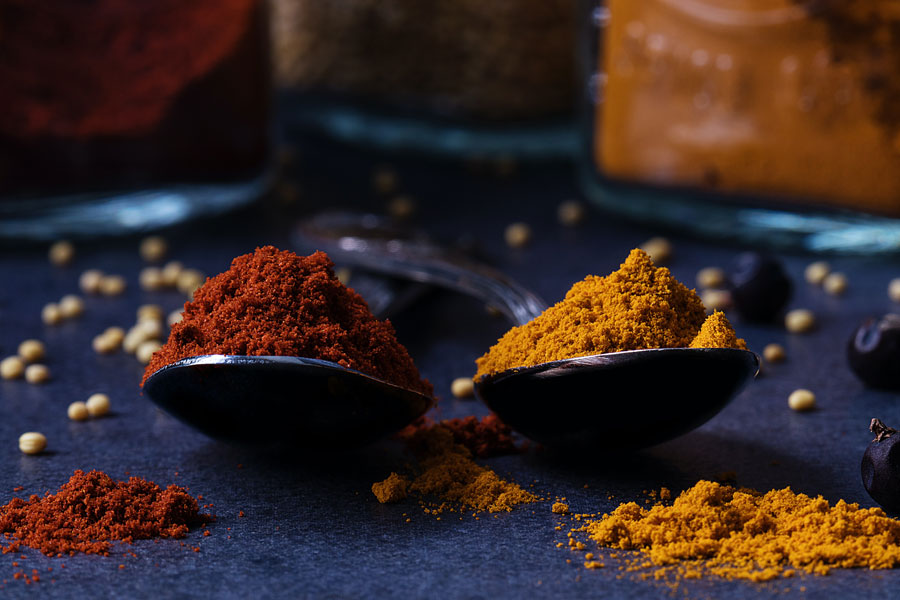The beauty of mindful eating is that it focuses on the aspects of holistic health that develop our mind, body, and spirit.
COVID-19 has transformed the way we interact with our communities and the way we approach healthier eating. There is a simplicity and convenience in stopping by a fast-food restaurant and indulging in their best dish. So often, I find we indulge when we are stressed or bombarded by our daily routine and struggles. The impact of that meal on our health can result in physical, social, and environmental anomalies. Chronic diseases like cardiovascular disease, diabetes, and cancer can arise, leading to severe illness. The beauty of mindful eating is that it focuses on those aspects of holistic health that develop our mind, body, and spirit.
Since I was a little girl, my parents have advocated for conscientious eating. Though they themselves do not always partake in this lifestyle, they still recognized its importance. They taught us that the ingredients of our globe should be respected. Simple living and the sustenance of life are the truest voice of the people that surround us. A meal is so much more than the enjoyment of the dish. It requires the producers, suppliers, cooks, and educators to bring the meal to life.
My mother, Nira Patel, serves simple Indian recipes that incorporate the disease-preventive spices from India. Her favorite dish is khichadi. To accompany the dish, she adds ghee (clarified butter), shaak (a sautéed and spiced vegetable combination), and kadhi (a heated soup accompaniment made of gram flour and buttermilk). Traditionally, when eating, you place the khichadi in the dish, layering with a small amount of ghee, shaak, and finally adding the kadhi for a soupy consistency.
Some individuals like my grandfather -- or as he is more affectionately known, dada -- love to add the Indian spiced mango pickle. This recipe holds great importance in Ayurvedic cuisine, but also to the transforming culture of our health. The khichadi recipe follows the World Health Organization guidelines in that a healthy diet should encompass fruit, vegetables, legumes, whole grains, and a small percentage of fats. Though the recipe traditionally incorporates white rice, an alternative grain could be used to optimize its healthful effect.

Incorporating intuitive eating should begin with a moment of reflection or meditation prior to eating. Every bite should be thoughtful and taken with appreciation for the food and the people who made it possible. Following the meal, a fruit should be scoured and cut for the final tasteful component of the meal. An intuitive meal is its attention to holistic health, which includes attention to the mind, body, and spirit. Most importantly, the meal should be shared with friends, family, and the community. In my opinion, this is the most ideal way to approach dietary health within our food system.
Khichadi Recipe
- 1 cup moong dal or preferred lentils
- 1 cup rice
- ½ tsp turmeric powder
- Salt to taste
- ½ teaspoon ghee, per person
Begin the recipe by rinsing the moong dal and rice together in a bowl. Rinse three times to discard the rice’s excess starch. Cover with water, soak, and set aside for 15-20 minutes. This will prepare the rice for a softer consistency when it is cooked. Within a pressure cooker, pour the rice and dal with water and add additional water. Using your ring finger as a measurement, fill the water to ¾ full above the rice mixture. Place the lid on the pressure cooker on the stove at the high temperature setting. Allow the cooker to whistle three times before removing it from the stove, approximately 20 minutes. If you prefer a softer khichadi, allow for 1-2 more whistles. Just to note, the timings will differ in the instant pot.
Accompaniments
Kadhi and Shaak (Can substitute local greens like collards, radish greens, and beet greens for added nutritional benefit)
About the Author
Priya Patel, MPH, CHES is the Community Health and Well-being Coordinator at St. Mary’s Good Samaritan Hospital and St. Mary's Sacred Heart Hospital, members of Trinity Health. Her passion is in the food system and cooking, the social justice issues that affect the world, and most importantly, her global community. In her free time, she enjoys reading, writing, cooking, and dancing. The inspiration in her life comes from the influential lives of Mahatma Gandhi, Nelson Mandela, Princess Diana, Helen Keller, and her family. She hopes to use this inspiration in the work she accomplishes with Trinity Health, St. Mary’s Health Care System, and beyond.




